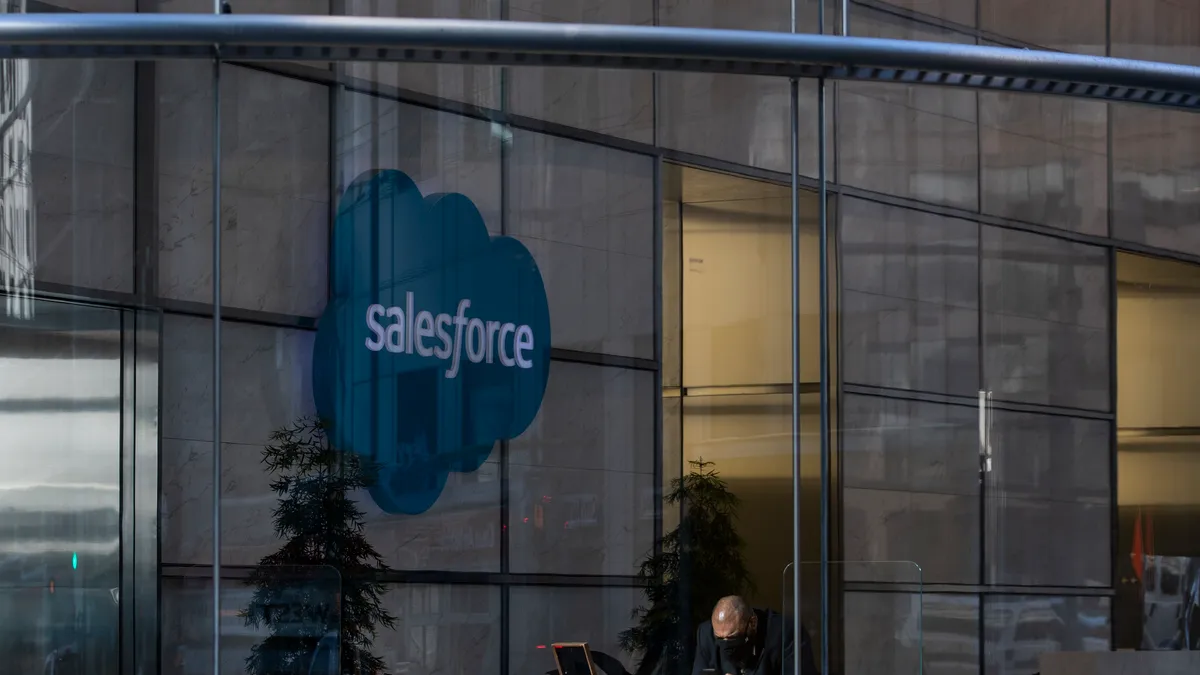Dive Brief:
- Salesforce is banking on a price increase announced in July and a new suite of AI features deployed across its SaaS and CRM products to jumpstart long-term revenue growth, Brian Millham, president and COO of the enterprise software company, said Wednesday during a Q2 2024 earnings call, for the three-month period ending July 31.
- The company raised customer fees by an average of 9% across several of its software products, including Sales Cloud, Service Cloud, Marketing Cloud, Industries and Tableau this month. It’s Salesforce’s first price increase in seven years, according to the July announcement.
- “We're going to see the impact of our price increase really hit the customer base over the next one to two to three years,” Millham said.
Dive Insight:
The SaaS market took a revenue hit during the first half of the year as cost-conscious customers reacted to macroeconomic uncertainty with a more parsimonious approach to IT spending.
An upsurge in enterprise enthusiasm for generative AI capabilities and ongoing drive to modernize through cloud infrastructure and software services helped stabilize Salesforce’s revenue growth rate this quarter.
The company reported an 11% year-over-year bump on $8.6 billion in quarterly revenues Wednesday. That’s a considerable drop from the 22% year-over-year revenue growth the company reported during the same period last year, but it’s in line with the 11% year-over-year increase reported for Q1 2024.
“The measured macro environment continues to impact customer decision-making, and we are still seeing elongated sales cycles, additional deal approval layers, and deal compression in our subscription and support and professional services businesses,” Amy Weaver, Salesforce’s CFO, said during the Wednesday call.
Salesforce found cause for optimism in its industry verticals, which include automotive, financial services, healthcare and public sector solutions. “For the third consecutive quarter, eight of our industry clouds grew at an ARR above 50%,” Millham said.
Like many tech-sector companies, Salesforce restructured its business to better align its spending with economic realities. The company announced it would cut 10% of its workforce in January, laying off approximately 8,000 workers.
Marc Benioff, Salesforce chairman and CEO, hinted at a turnaround during Wednesday’s call, pointing to investments in new technologies.
“We are continuing to grow and invest in our headcount, especially in AI,” Benioff said.
As the race to infuse CRMs and ERPs with generative AI got underway, Salesforce was quick to build off OpenAI’s models for its solution, Einstein GPT.
The company deployed the tool in its Salesforce Customer 360 CRM and in Slack, the enterprise communication tool it owns, in March and has since invested more than $20 billion in AI research and development, according to the July price hike announcement.
Benioff observed that AI has sparked a massive tech-buying and investment cycle.
"The reality is every company will undergo an AI transformation with the customer at the center,” Benioff said, “because every AI transformation begins and ends with the customer.”
Salesforce has used Einstein GPT in its own executive meetings, Benioff revealed, noting that the AI tool said Millham was “sandbagging.”
“That's the AI revolution coming at you, baby, so get ready,” Benioff said during an exchange with Millham.













